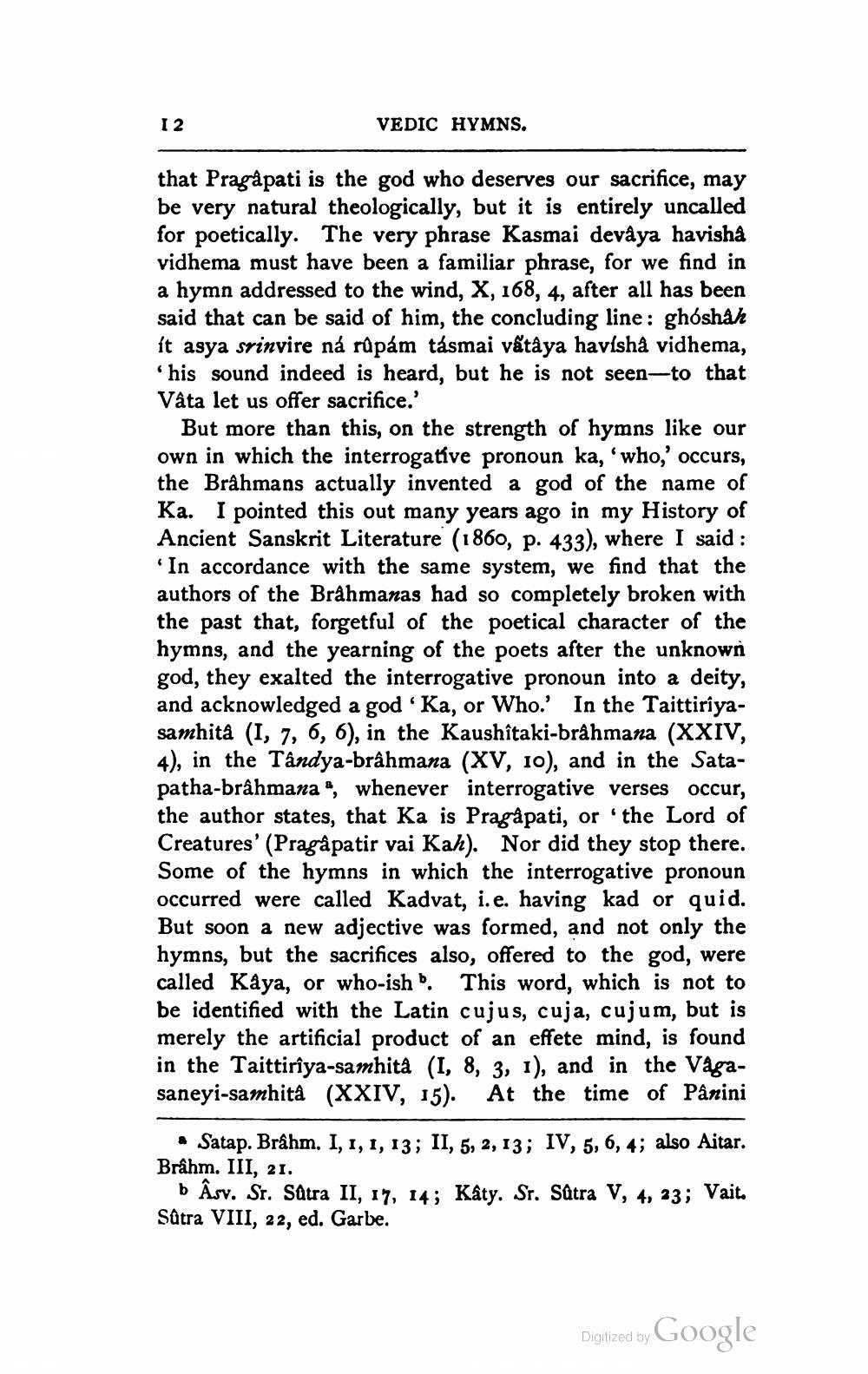________________
I 2
VEDIC HYMNS.
that Pragàpati is the god who deserves our sacrifice, may be very natural theologically, but it is entirely uncalled for poetically. The very phrase Kasmai devaya havisha vidhema must have been a familiar phrase, for we find in a hymn addressed to the wind, X, 168, 4, after all has been said that can be said of him, the concluding line: ghoshah it asya srinvire ná růpám tásmai våtâya havishå vidhema, his sound indeed is heard, but he is not seen-to that Vâta let us offer sacrifice.'
But more than this, on the strength of hymns like our own in which the interrogative pronoun ka, 'who,' occurs, the Brâhmans actually invented a god of the name of Ka. I pointed this out many years ago in my History of Ancient Sanskrit Literature (1860, p. 433), where I said :
In accordance with the same system, we find that the authors of the Brahmanas had so completely broken with the past that, forgetful of the poetical character of the hymns, and the yearning of the poets after the unknown god, they exalted the interrogative pronoun into a deity, and acknowledged a god . Ka, or Who.' In the Taittiriyasamhità (I, 7, 6, 6), in the Kaushîtaki-brâhmana (XXIV, 4), in the Tandya-brâhmana (XV, 10), and in the Satapatha-brâhmana, whenever interrogative verses occur, the author states, that Ka is Pragàpati, or the Lord of Creatures' (Pragâpatir vai Kah). Nor did they stop there. Some of the hymns in which the interrogative pronoun occurred were called Kadvat, i.e. having kad or quid. But soon a new adjective was formed, and not only the hymns, but the sacrifices also, offered to the god, were called Kaya, or who-ish. This word, which is not to be identified with the Latin cujus, cuja, cujum, but is merely the artificial product of an effete mind, is found in the Taittirîya-samhità (1, 8, 3, 1), and in the Vågasaneyi-samhità (XXIV, 15). At the time of Pånini
• Satap. Brâhm. I, 1, 1, 13; II, 5, 2, 13; IV, 5, 6, 4; also Aitar. Brahm. III, 21.
bâsv. St. Sätra II, 17, 14; Kâty. Sr. Sætra V, 4, 33; Vait. Sätra VIII, 22, ed. Garbe.
Digitized by Google




